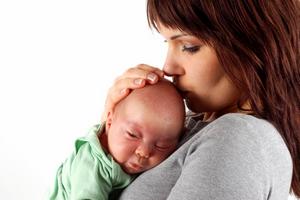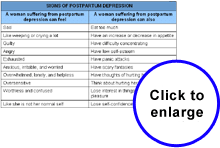D. HEALTHY MOTHER
The first weeks after childbirth are a time of change and adjustment. You must adapt to several new things.
These are the best things you can do for yourself.
- Rest as much as you can.
- Eat healthy.
- Accept help from others.
- Share your feelings with your partner and others you care about.
a. Adjusting to Motherhood
By taking care of yourself, it will be easier to take care of your baby.
Childbirth has an impact on all the aspects of your life. Here are some examples.
These changes seem to happen all at once and are all mixed up. You may not know why you feel so overwhelmed. You just know that you feel that way. You may even be surprised to feel this way.
All these conflicting feelings come at a time when you are extremely tired. Everything seems more difficult when you are tired.
Sharing your feelings with your partner is especially important now. If you feel tired, or lonely, or resentful, say so. You may find that your partner feels the same way.
Talking with other new mothers can also help to reassure you. When they share how they feel, you will see that you are NOT alone.
b. Your Body after Pregnancy
During the first six weeks following your baby's birth, your body goes through many changes. Here are a few.
Remember that you were pregnant for nine months. It takes a while for your body to recover and feel "normal" again.
Most women have a postpartum checkup about six weeks after giving birth. This checkup gives you a chance to talk to your health care provider about your questions and your concerns. This is a good time to talk about birth control.
c. Starting Your Period again
After childbirth, you will continue to have vaginal discharge for several weeks. This is called lochia
If you breastfeed, you may not have a regular period for months or until you stop breastfeeding. If you are formula feeding, your period will probably return between 4 and 9 weeks after you have your baby. Your first period after delivery may be heavier and last longer than your period normally does.

Once your period returns, it may be irregular for a while. This is normal. You should know that you can get pregnant before your period returns. If you do not want to get pregnant, you should use some type of birth control.
d. Fatigue
e. Postpartum Blues and Depression
The arrival of a new baby is usually a happy time for most women. However, this is not always true. New mothers may feel different emotions ranging from happiness to sadness.
Two or three days after giving birth, about 80% of women may feel:
- feel disappointed
- be sad and teary eyed
- be irritable
- feel overwhelmed and anxious
- feel fatigued and have difficulty sleeping
- experience mood swings
- be unable to concentrate
This is called postpartum or baby blues. These feelings usually go away within one to two weeks. However, about 10 percent of women go on to have postpartum depression.

Postpartum depression may begin within a few weeks after birth or at any time during your baby's first year.
Consult the following table to learn a few signs of postpartum depression.
If you have one or many of these symptoms, remember, you are not alone, and this is a treatable illness.
 |
See your doctor immediately or go to the emergency room at the hospital if:
If other feelings depression persist longer than two or three weeks, contact:
|
This video, created by the Best Start Resource Centre, introduces the topic of postpartum mood disorders.Life with a New Baby: Dealing with Postpartum Mood Disorders.
f. Getting Back Into Shape
It is only natural to want to return to your pre-pregnancy shape as soon as possible. Give yourself some time. Remember that you were pregnant for nine months. Your body won't return to normal overnight.
Sensible eating and regular exercise will help you to feel fit. For additional information, see Module 5 entitled" Healthy Diet" and Module 6 entitled "Healthy Activity".
Good health matters as much now as it did during your pregnancy. Eat well, rest, stay active, and avoid drugs and smoking. Taking care of yourself is as important as taking care of your baby.

g. Going Back to Work
Many new mothers have anywhere from 6 to 12 months of maternity leave. Others return to work or to school much sooner.There is a lot to think about before returning to work or school.
When making your plans for returning to work or school, you should consider the following.
There is no "best" time to return to work or to school. Every situation is different for each family. You must find a balance between work or studies and your new role as a parent.

h. Single Parenting
Whether you are a single parent by choice or by chance, you are not alone.
Adjusting to parenthood, finding a balance between work and home, managing money, and finding time for yourself are issues all mothers face. They can be even more difficult when you are on your own.
All the advice for new mothers applies to you, but even more so. Single mothers must take care of themselves, establish a good support network, and be realistic about what they can do.
Inquire about the resources and community services available to you. Talk to a public health nurse, or visit your nearest Community Health Centre or Community Resource Centre.






